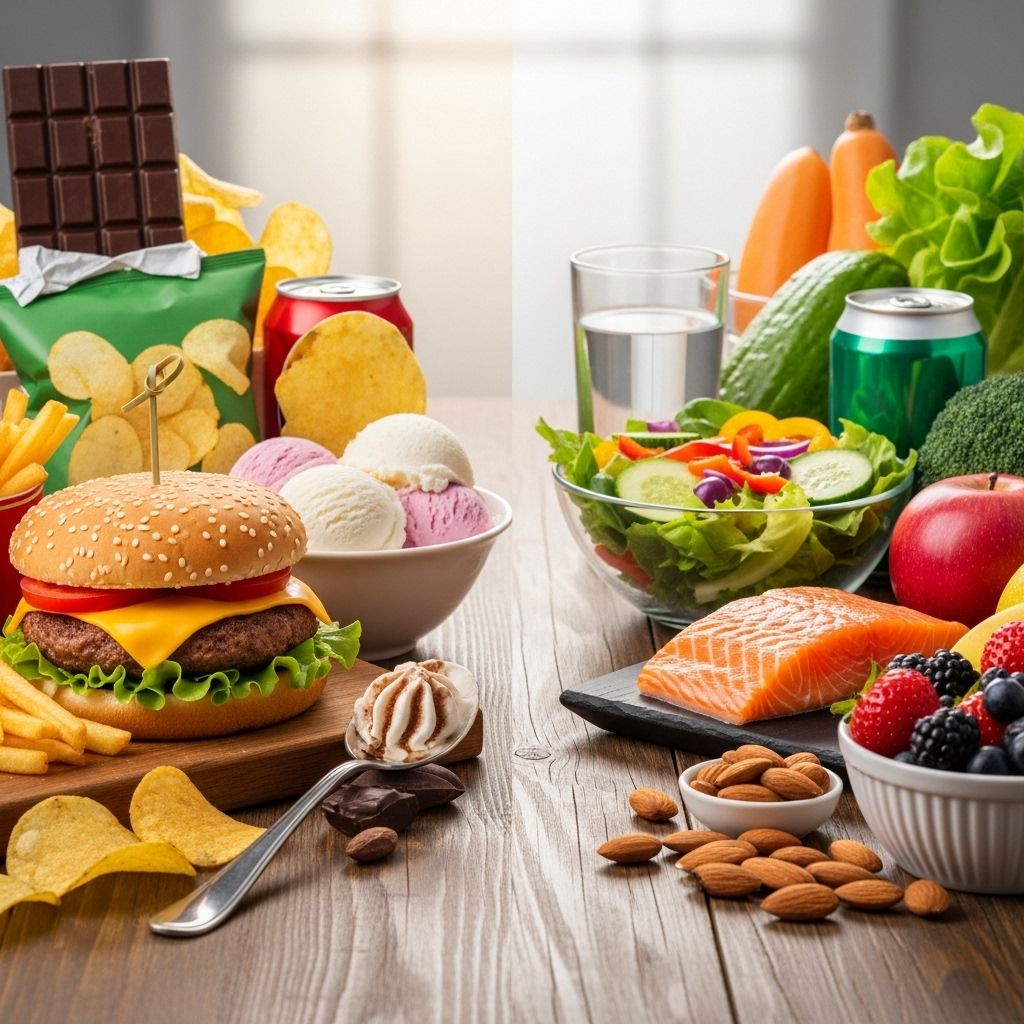What Your Food Cravings Reveal About Your Health
Discover how your everyday food cravings might be signaling something deeper than a simple longing for comfort foods.

We’ve all had moments where nothing but a specific food will do—whether it’s a chocolate bar, a bag of salty chips, or a bowl of creamy mac and cheese. But have you ever stopped to wonder why those cravings are so powerful, or if they’re telling you something about your body? Science shows that cravings are more complex than simple hunger or nutritional needs. This article dives into the roots of food cravings, debunks common myths, and unpacks which cravings can actually be warning signs of health problems.
Understanding Food Cravings: Myths and Facts
There’s a widespread belief that we crave certain foods because our bodies are signaling a nutritional deficiency. The story goes that craving chocolate means a magnesium deficit, or longing for steak suggests a lack of iron. However, experts say the evidence doesn’t support most of these claims:
- Scientific studies show little connection between specific cravings and nutrient shortfalls. For example, if low magnesium really caused chocolate cravings, we’d all crave mineral-rich foods like pumpkin seeds, but that’s rarely the case.
- People typically crave foods high in fat, sugar, and carbohydrates—not fruits, vegetables, or other nutrient-dense choices.
- Cravings still occur even when diets are nutritionally complete. Research has documented that cravings persist even with balanced eating plans.
So if deficits aren’t behind that nightly cookie craving, what is?
Why Do We Really Crave Certain Foods?
Most food cravings are rooted in emotion, reward, and routine rather than biology:
- Comfort Foods: Under stress, we gravitate toward foods that release feel-good brain chemicals such as dopamine. This is why emotional lows often trigger intense desire for sweets or carb-rich meals.
- Environmental Triggers: Smells, sights, or even memories can set off powerful cravings due to how our sensory systems link to the brain’s reward pathways—without any real physical hunger.
- Diet and Deprivation: Restrictive diets or eating the same foods repeatedly can make us crave what’s off-limits, simply because it’s forbidden or monotonous.
In short, the urge to eat pizza or ice cream isn’t your body begging for nutrients—it’s often your mind seeking satisfaction, relief, or pleasure.
When Food Cravings Signal A Health Problem
While most cravings are harmless or psychological, there are a few that may be early warnings of medical issues. Here are three major cravings you shouldn’t ignore:
Craving #1: Excessive Water
- Possible Cause: Diabetes
Feeling persistently thirsty—more than after a workout, and coupled with frequent urination—can be a sign of diabetes. In diabetes, high blood sugar forces your kidneys to work overtime, leading to increased urine production and, as a result, chronic thirst. If this mirrors your experience, especially with other diabetes symptoms (fatigue, blurred vision, slow-healing wounds), see a medical professional promptly.
Craving #2: Salt
- Possible Cause: Addison’s Disease
Craving salty foods intensely and frequently (and you’re not an endurance athlete sweating out salt) could point to Addison’s disease. This disorder affects the adrenal glands, leading to dangerously low hormone (especially cortisol and aldosterone) production, which in turn can cause low blood pressure and unusual salt cravings. Left untreated, Addison’s disease can be life-threatening.
Craving #3: Non-Food Items
- Possible Cause: Pica/Deficiency Disorders
The persistent desire to eat things with no nutritional value—such as ice, clay, paper, or dirt—is known as pica. This is sometimes linked to iron deficiency anemia or other nutrient imbalances, especially in children and pregnant women. It’s important to seek medical advice if you or someone you know experiences these impulses.
The Science of Craving: How Your Brain Gets Hooked
Food cravings light up the brain’s reward and motivation pathways. Here’s how the process works:
- Triggers: Sights, smells, environmental cues, or even routines (like popcorn during a movie) stimulate these neural rewards.
- Dopamine Release: Craving and eating desired foods cause the brain to release dopamine—reinforcing pleasurable eating patterns.
- Not the Same as Hunger: Hunger is driven by physiological needs; cravings are often triggered by emotion, habit, or deprivation.
Even thinking about forbidden foods can initiate “craving circuitry” in the brain, strengthening the association between eating and pleasure.
Common Food Cravings and Their True Meanings
| Food Craved | Common Myths | Science-Based Explanation |
|---|---|---|
| Chocolate | Magnesium deficiency | Comfort, stress release, dopamine boost |
| Crunchy Snacks (chips, pretzels) | Need for salt or minerals | Stress relief, environment, habit |
| Bread/Pasta | Carbohydrate shortage | Desire for quick energy, serotonin boost |
| Ice cream/Sweets | Sugar deficiency | Sensory satisfaction, emotional comfort |
| Salt | Body needs more salt | May indicate Addison’s (if extreme), but usually habit or environment |
Why “Craving ≠ Deficiency”: Debunking the Myths
While it’s tempting to read deep meaning into every craving, science doesn’t support most direct nutritional links. In fact:
- Athletes and heavy sweaters may truly need salt, but otherwise, salt cravings are rarely a sign you need more sodium.
- Chocolate is far from the best source of
References
- https://www.prevention.com/food-nutrition/healthy-eating/a20457134/food-cravings-and-illness-0/
- https://www.heart.org/en/news/2024/07/26/where-do-food-cravings-come-from-and-can-we-stop-them
- https://www.prevention.com/health/g20432227/food-cravings-and-illness/
- https://www.prevention.com/weight-loss/a20466650/how-to-stop-food-cravings-and-overeating/
- https://www.prevention.com/food-nutrition/a64590822/how-to-stop-sugar-cravings-fast/
- https://www.prevention.com/weight-loss/a20474557/how-to-reduce-food-cravings-with-your-finger/
- https://www.prevention.com/weight-loss/g20508005/7-ways-to-control-cravings/
- https://www.prevention.com/health/a20508847/5-eating-disorders-youve-never-heard-of/
- https://www.prevention.com/food-nutrition/healthy-eating/a65664887/ultra-processed-foods-weight-loss-gut-health-study/
- https://pmc.ncbi.nlm.nih.gov/articles/PMC7399671/
Read full bio of Sneha Tete












